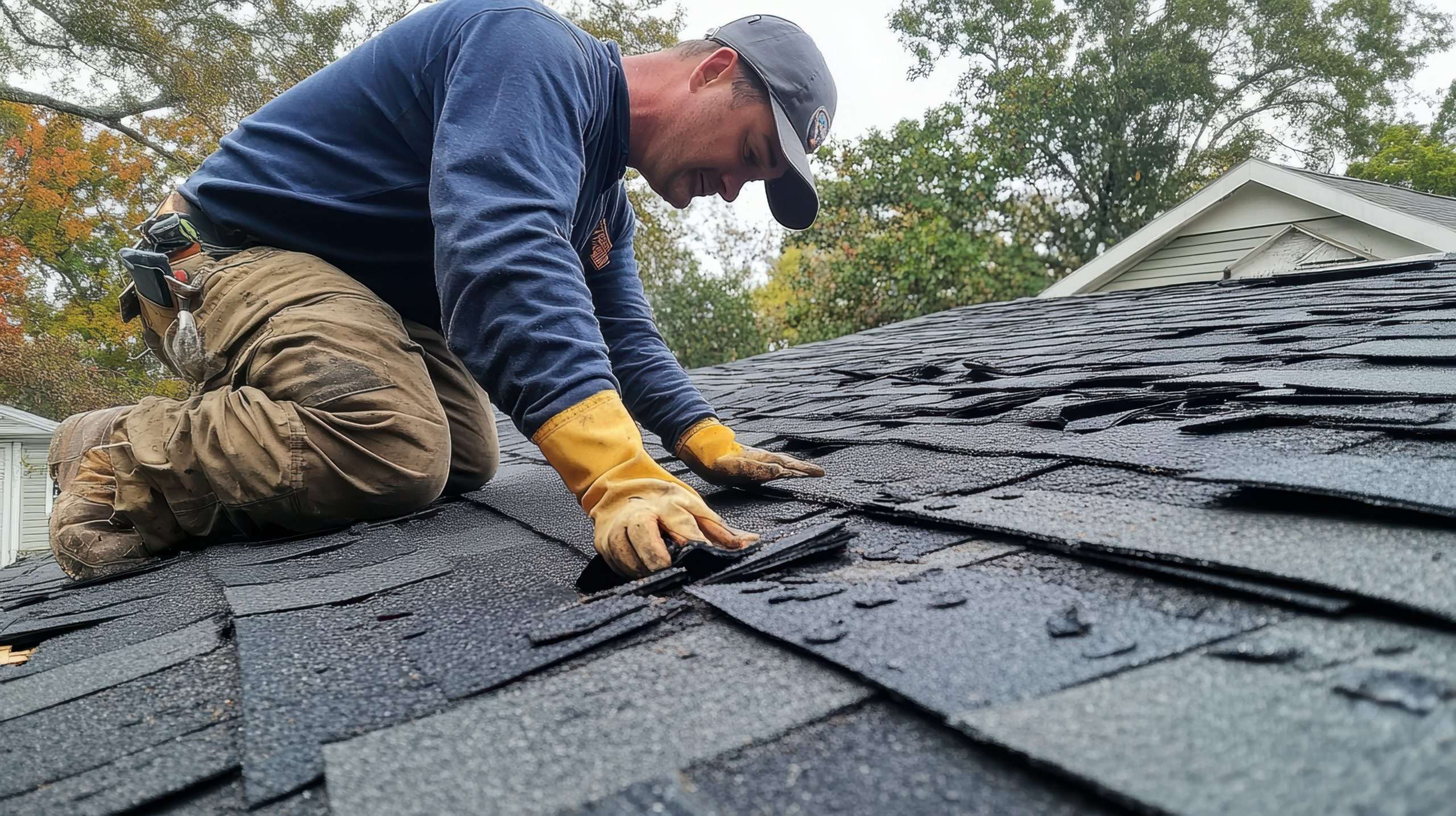When your roof shows signs of damage deciding between repair and replacement can be challenging. Here’s a breakdown of the key differences, advantages, and considerations to help make your decision.
When to Consider Repair:
Repairing a roof is ideal for minor issues like a few missing shingles, small leaks, or localized damage. If your roof is relatively new (less than 10-15 years), repairs may be more cost-effective and fix the problems that can lead to further damage down the road.
Advantages:
- Cost-Effective – Typically, cheaper than a full roof replacement.
- Time-Saving – Repairs can often be completed quickly, minimizing disruption.
- Preserves Existing Materials – Maintains the current roof, which may still have years of life left.
Considerations:
- Temporary Solution – Repairs might not address underlying issues and could require repairs in the not so distant future.
- Limited Lifespan – If damage is widespread, ongoing patchwork may lead to higher cumulative costs.
- Shingle Match – It may be challenging to match roofing materials so that the repaired area blends with the rest of the roof.
- Inspection Required – You’ll need a thorough inspection to ensure there are no hidden problems.
When to Consider Replacement
Replacement should be done if the roof has significant wear, multiple leaks, or widespread damage. Generally, the lifespan of a roof is 20-30 years so if your roof is nearing the end of its lifespan it may be smarter to make the investment one time now rather than have an additional expense in a few years.
Advantages:
- Long-Term Solution – A new roof can last many years and typically comes with warranties.
- Increased Home Value – A new roof can enhance the curb appeal and increase property value.
- Energy-Efficiency – New materials improve insulation and reduce heating and cooling costs.
Considerations:
- Higher Initial Cost – Replacement is a significant investment compared to repairs.
- Disruption – Replacing a roof can be noisy, may take longer, and can impact your daily life.
- Permit and Code Compliance – Your location may require permits and adherence to local building codes. Your roofing contractor should be aware of the local requirements and include this as part of their service.
Making the Decision
If you know that you need work done on your roof have a professional inspect it to determine the extent of damage and provide recommendations. Make sure that you get multiple quotes so you can compare the cost of replacement vs repair, and consider how long you plan to stay in your home. If you’re planning to sell soon, repairs might suffice, if you plan to stay long-term, replacement may be a better investment.
Ultimately the decision between repair and replacement should be based on a thorough assessment of your roof’s condition, your budget, and future plans. Consulting with a qualified, licensed roofing contractor can provide valuable insights and guide you down the path of peace of mind.

